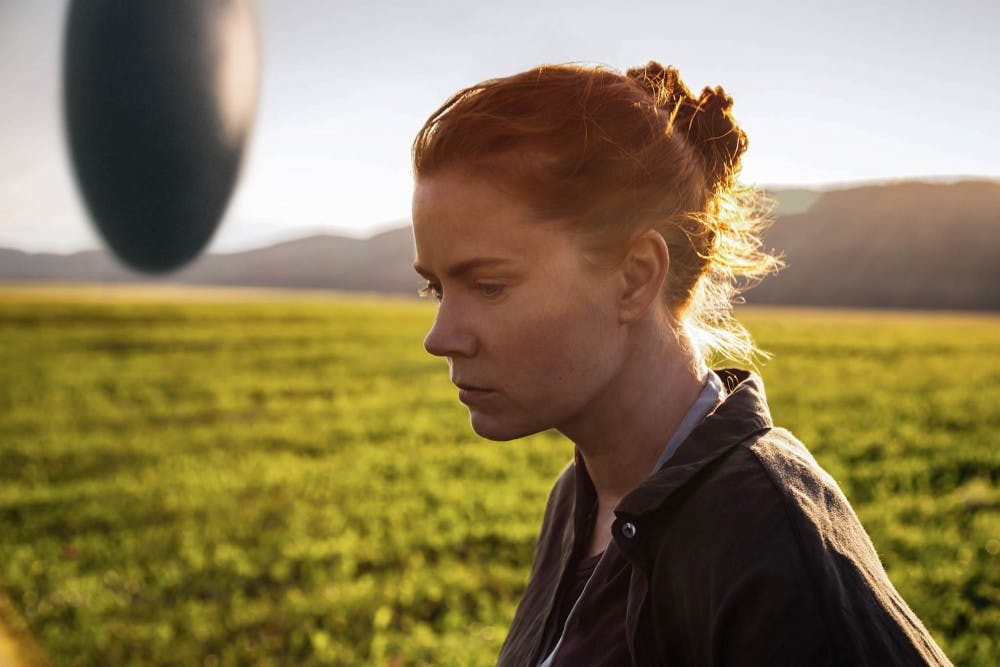Release Date: Nov. 11
Duration: 116 minutes
Direction: Denis Villeneuve
Production Company: Paramount Pictures
Grade: B+
She strips out of her hazmat suit and walks cautiously toward the invisible barrier between herself and the alien. She reaches out and places her hand against the force field, mirroring the long, squid-like tendrils on the other side. The act is a handshake of sorts. “Now that’s a proper introduction,” she says.
Her name is Louise, and she has been designated as the U.S.' linguist in order to mediate an understanding between humans and Earth’s newest inhabitants. This interaction between Louise and the government-dubbed ‘Heptapods’ sets the plot of Denis Villeneuve’s “Arrival” in motion.
The film is the latest in a line of popular science fiction pictures; however, as the movie progresses, Villeneuve reveals that the narrative focuses less on physics and more on humanity’s attempt to understand itself.
In a role that may see her nominated for her sixth Oscar, Amy Adams is effective at portraying Louise’s keen and perceptive thirst for knowledge. A linguist, her character is most concerned with passive communication and understanding of the beings she interacts with. Therefore, Adams plays a more restrained role than the typical action heroes of today.
Louise’s attempt at peaceful discourse is one of the film’s major differences from those that came before it. Rather than acting in violence in “Alien"-esque fashion, humans first attempt to understand the Heptapods. “Arrival” is not the prototypical crowd-pleasing, action-filled thriller that many will expect it to be. Instead of fighting extraterrestrial creatures, the film is concerned with identity, understanding and the passage of time.
Villeneuve does the film justice with direction that contrasts scenes and builds characters’ backgrounds with ones that propel the plot forward. Throughout the story, Villeneuve interjects scenes of Louise’s personal life.
In these vignettes, we see Louise lose her only daughter. Adams portrays the emotional weight and grief of such loss with beautiful strength and controlled emotions, improving the integrity of her character’s emotions. These scenes allow us to sympathize with Louise as a woman past academia — we feel for her, and we want her to win for once.
When coupled with the futuristic plotline, the scenes of Louise’s past life allow the narrative to focus on humanity as much as science. Villeneuve and cinematographer Bradford Young are to credit with balancing emotion with action, past with future.
“Arrival” is, above all else, a movie created to make its audience think; there is little action, but great thought is instilled into this story of humanity’s future. Its simmering effect creates a slow 45 minutes in the middle of the film that might result in a minor loss of attention for some viewers. However, as Max Richter’s beautiful song “The Swimmer” plays in the final shots of the movie, you’ll be on the edge of your seat, gripping the armrests as Louise and her partner Ian (Jeremy Renner) discover the full, astounding implications of the Heptapods’ answer to the question, “What is your purpose on Earth?”

